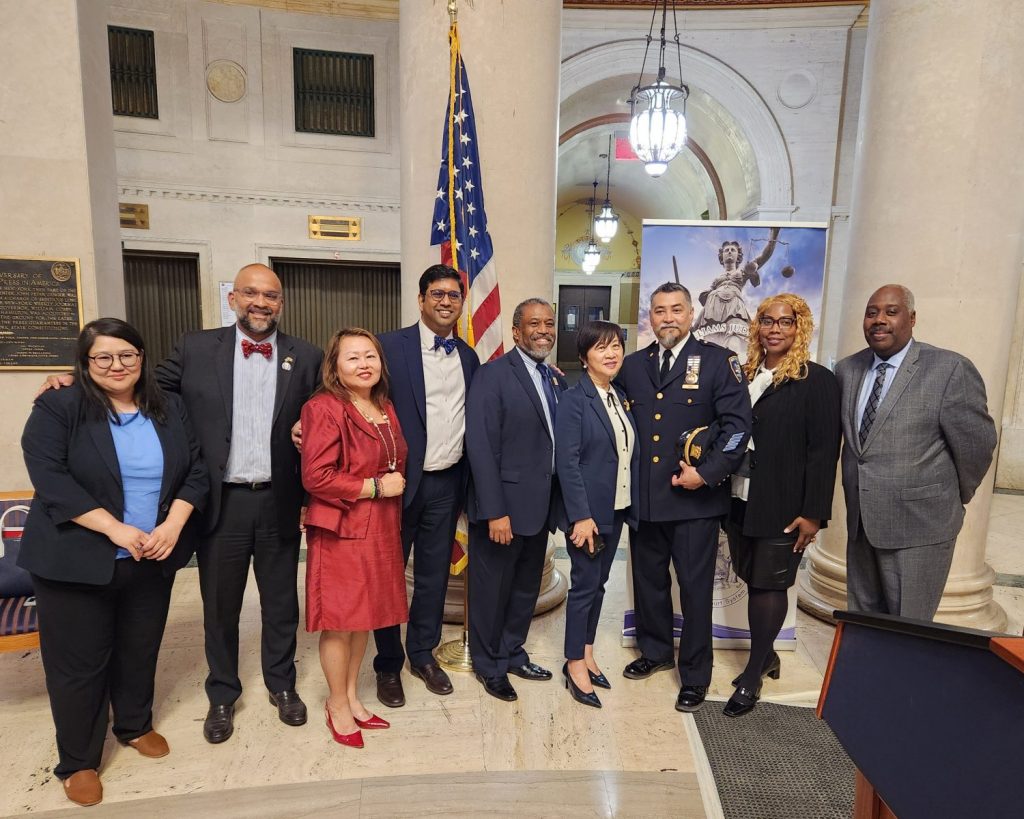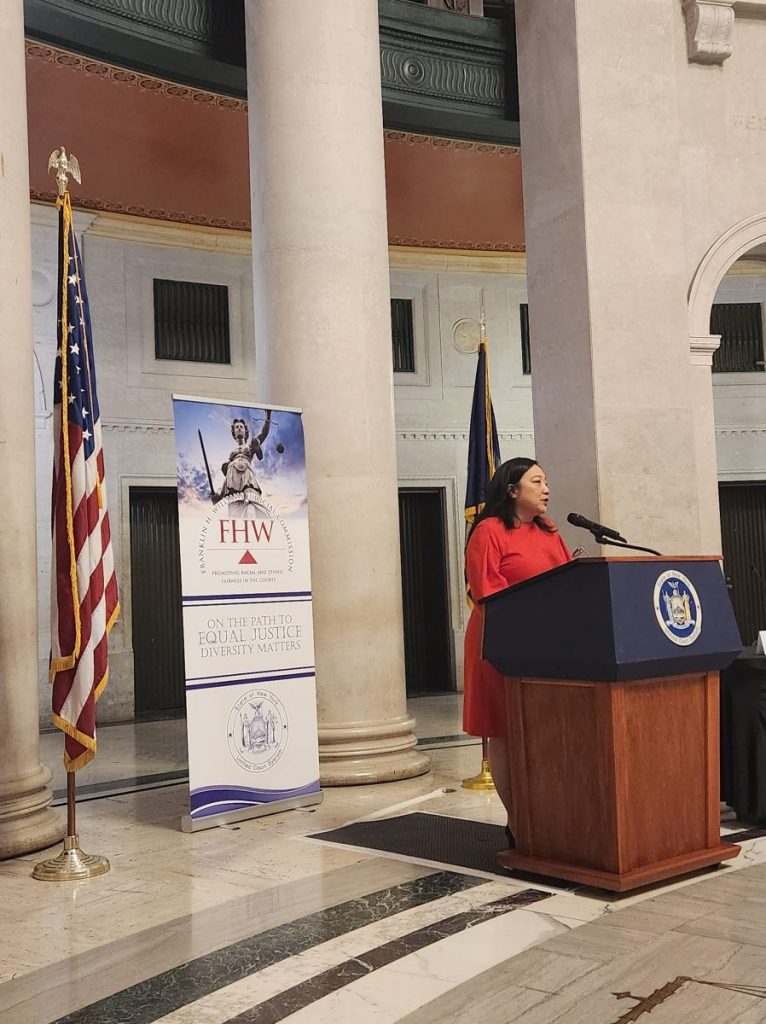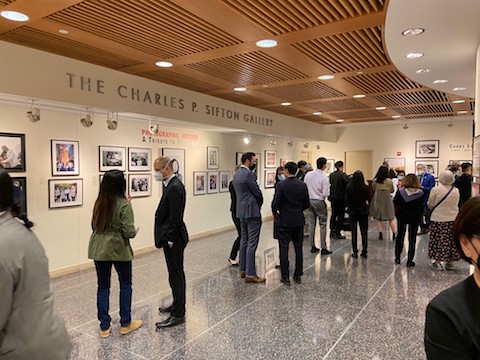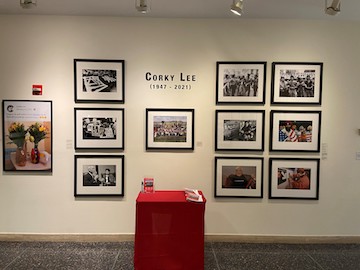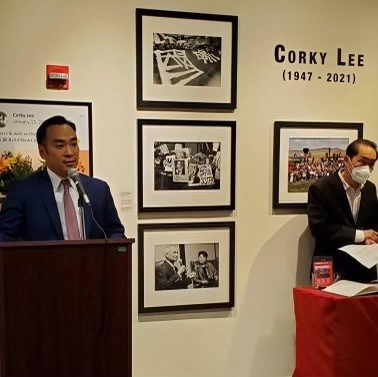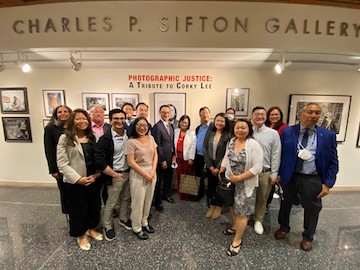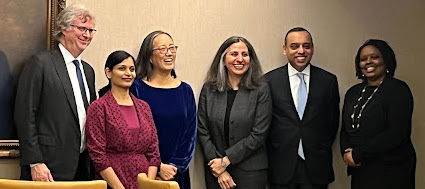AABANY co-sponsored the Inaugural Hon. Randall T. Eng Award Program on May 31, 2023, organized by and held at the Appellate Division, Second Department of the Supreme Court of the State of New York.
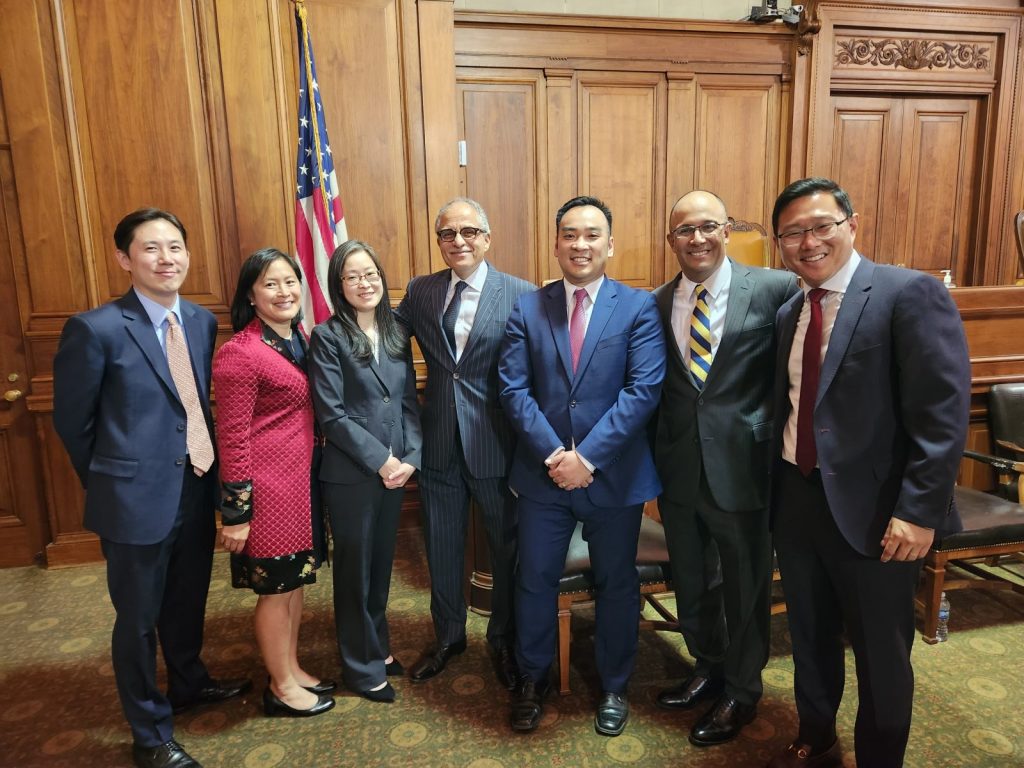
Congratulations to Hon. Randall T. Eng, Retired Presiding Justice of the Appellate Division, Second Department for this award named in recognition of his tremendous and trailblazing career and impact on the AAPI community.
Congratulations to Congresswoman Grace Meng, 6th Congressional District. As the first and only Asian American Member of Congress from New York State, it is only fitting that she is the first recipient of the Hon. Randall T. Eng award. Congresswoman Meng’s advocacy for the AAPI community is impactful and far-reaching and AABANY applauds her tremendous work and service, including her work towards the creation of a national museum of Asian Pacific American History and Culture.
Congratulations to Presiding Justice Hector D. LaSalle and the Appellate Division, Second Department with the successful launch of the Hon. Randall T. Eng Award Program.
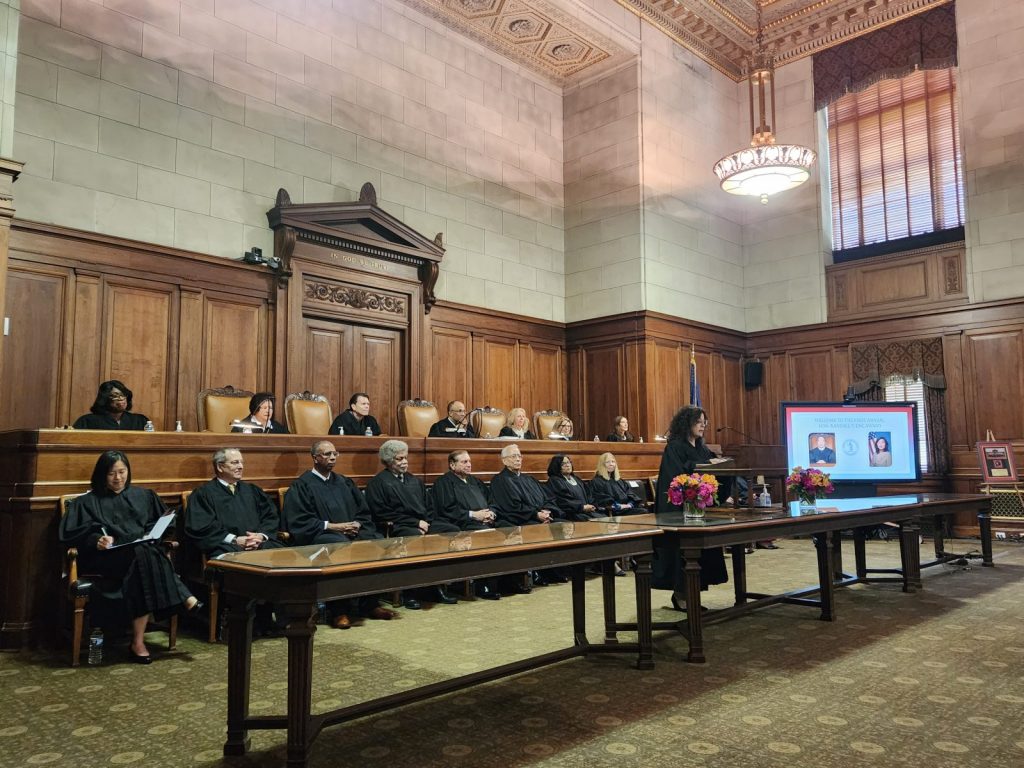
The Program included remarks from:
Hon. Lara J. Genovesi, Associate Justice, Appellate Division, Second Department
Hon. Hector D. LaSalle, Presiding Justice, Appellate Division, Second Department
Letitia James, New York State Attorney General
Melinda Katz, District Attorney of Queens
Hon. Lillian Wan, Associate Justice, Appellate Division, Second Department
Karen Kim, President, AABANY
Chief Judge Hon. Rowan D. Wilson was also in attendance, as well as the distinguished judges of the Appellate Division, Second Department, and Brooklyn District Attorney Eric Gonzalez. We would also like to extend our appreciation to the Associate Judges of the Court of Appeals, Hon. Madeline Singas, Michael Garcia, and Anthony Cannataro, for their attendance.
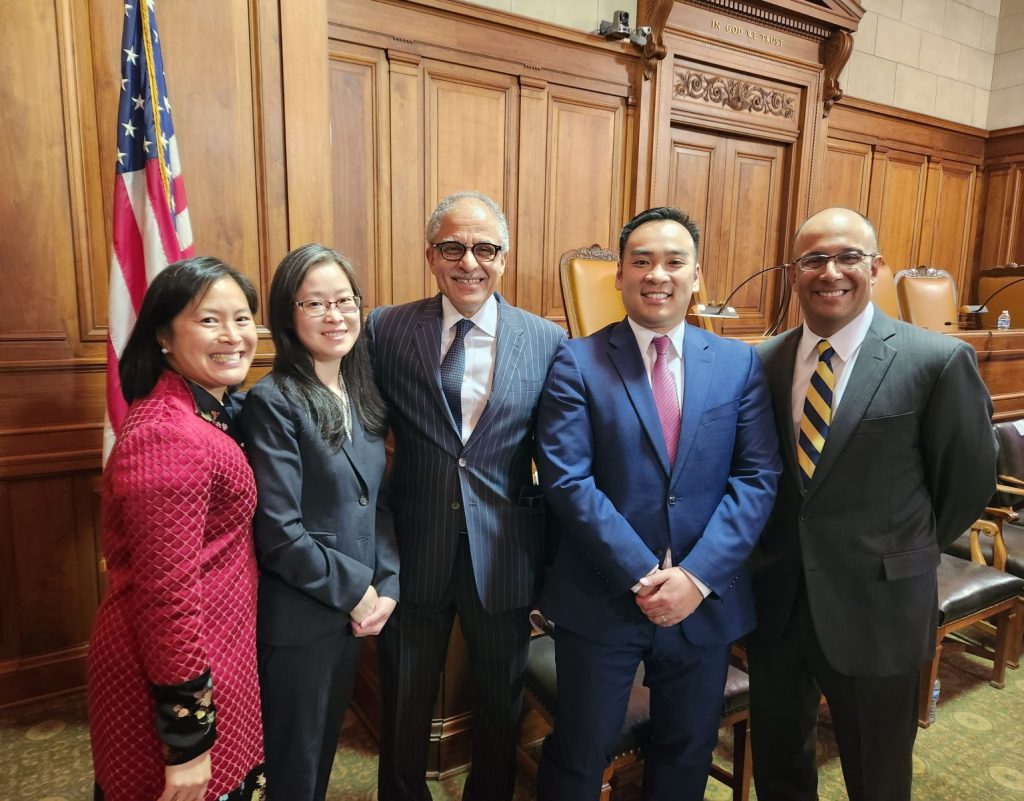
It was a privilege to collaborate with the Hon. Lillian Wan and the co-sponsoring bar associations: KALAGNY, FALANY, SABANY, MUBANY, and SAICBAQ. This event provided a meaningful and memorable way to celebrate and close out AAPI Heritage Month.


